An air conditioning system is one of the most significant investments every homeowner can make in their home. It not only cools the home during hot summer months but also helps maintain air quality and comfort. However, the cost of running an air conditioner can add up quickly, making it essential to maximize efficiency. With a few simple steps, homeowners can improve air conditioner efficiency, significantly saving energy bills and more.
What are the Benefits of Improving Air Conditioner Efficiency?
Homeowners can benefit in several ways from improving their air conditioner efficiency:
- Lower energy bills: By improving the efficiency of your air conditioner, you can reduce the amount of energy it uses to cool your home. This can result in energy consumption reduction, saving you money over time.
- Extended lifespan of the air conditioner: When an air conditioner is running efficiently, it experiences less wear and tear on its components which can help extend the lifespan of your unit and reduce the need for costly repairs or replacement.
- Improved indoor air quality: A properly functioning air conditioner can help remove pollutants and allergens from the air, improving indoor air quality and reducing the risk of respiratory problems.
- Increased home comfort: An efficient air conditioner can maintain a consistent temperature throughout the home, ensuring that all areas are comfortable and reducing the risk of hot or cold spots.
- Reduced environmental impact: By using less energy to cool your home, you can reduce your carbon footprint and contribute to a cleaner environment.
Now let’s take a look at some of the best ways to improve air conditioner efficiency:
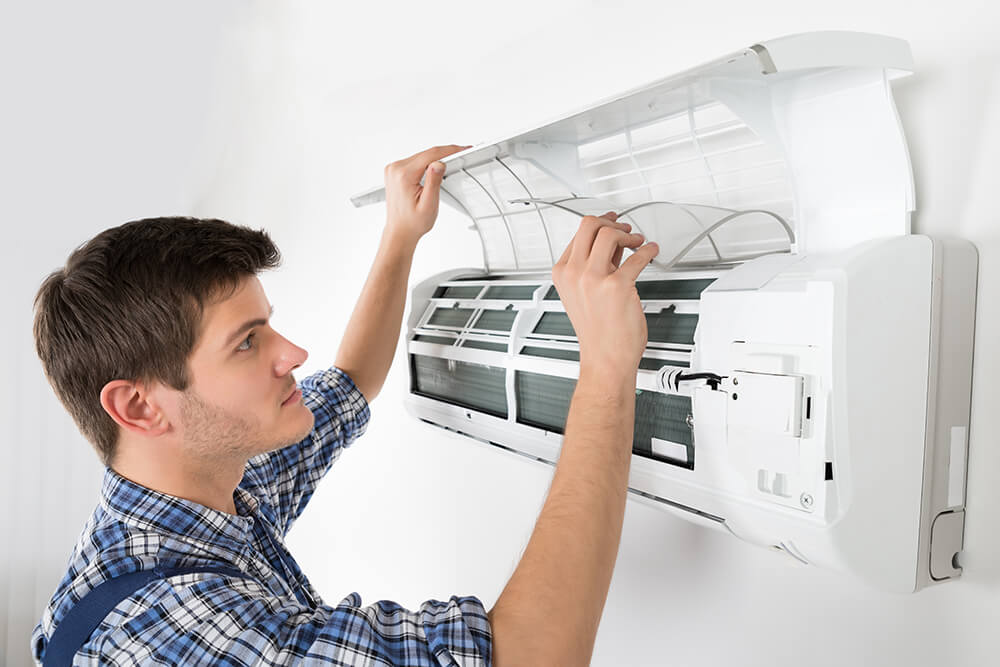
Keep the Air Filters of Your Air Conditioner Clean
Every air conditioning system has an air filter that plays a crucial role in keeping the unit functioning efficiently. Dirty filters can restrict airflow, making the unit work harder to cool the air.
Over time, this extra work can cause unnecessary wear and tear on the unit and increase energy costs.
To prevent this, homeowners should clean or replace the air filter regularly, depending on the manufacturer’s recommendations. A good rule of thumb is to check your A/C filter at least once a month and replace it every three months.
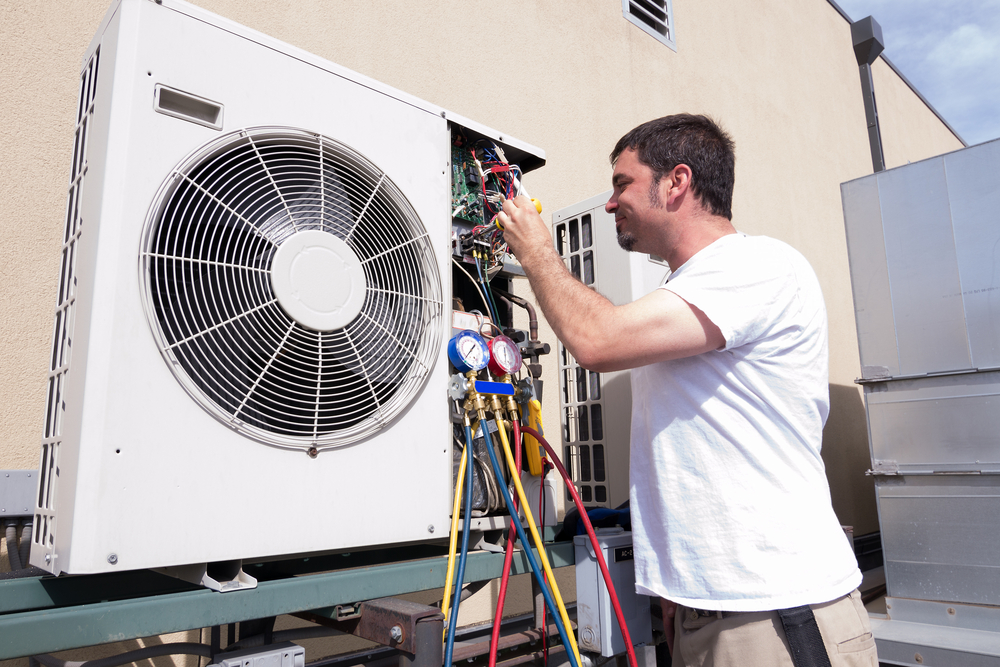
Regular Maintenance Is Crucial for Having Efficient Air Conditioner
Just like any other appliance, air conditioning units require regular maintenance to function at their best. An annual tune-up by a licensed HVAC company can help ensure that the system is operating efficiently and identify any potential problems before they become more significant issues.
During a tune-up, the technician will clean the coils, check the refrigerant levels, and ensure that all components are functioning correctly. This regular maintenance can help extend the life of the air conditioner, improve efficiency, and prevent costly repairs.
Install a Programmable Thermostat to Improve Air Conditioner Efficiency
A programmable thermostat allows homeowners to set the temperature of their homes according to their schedule. This means the air conditioner will only operate when necessary, resulting in energy savings. For example, homeowners can program the thermostat to raise the temperature during the day when they’re away from home and lower it before they return.
By reducing the workload on the air conditioner, a programmable thermostat can help improve efficiency and save money on energy bills.
Many modern thermostats are also Wi-Fi enabled, allowing homeowners to control the temperature of their interiors remotely from their smartphones.
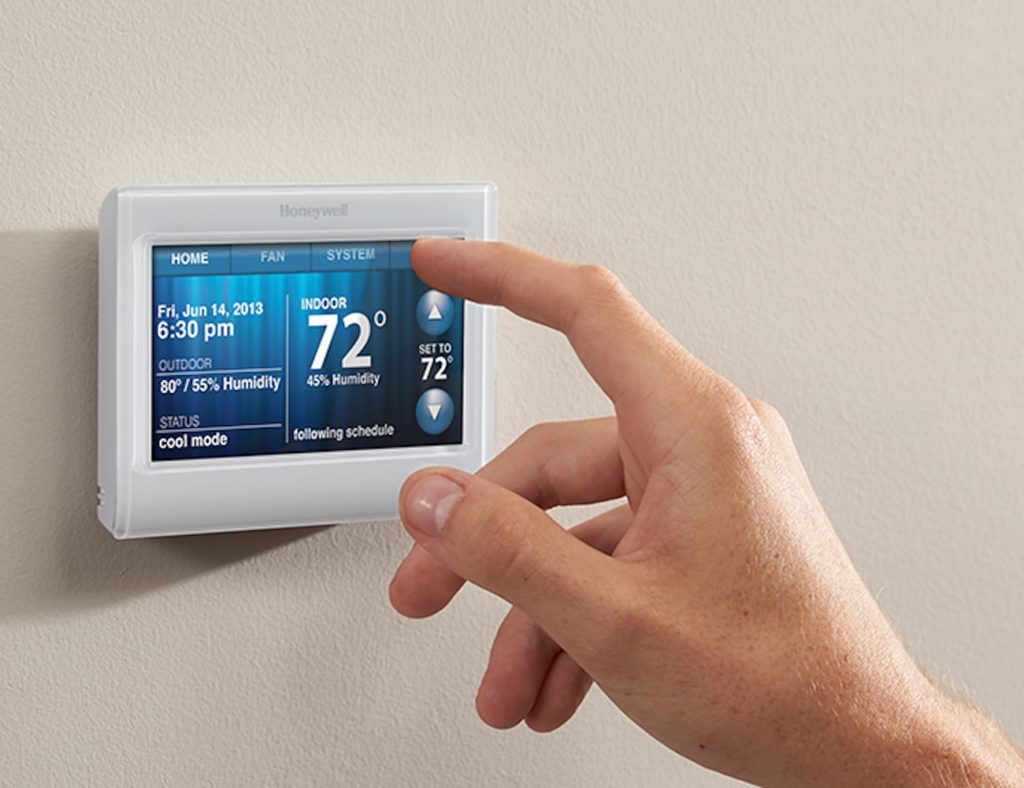
Seal Air Leaks and A/C Ducts
If there are air leaks in a home, the air conditioning system will need to work harder to maintain the desired temperature. These leaks can be found in areas such as windows, doors, and around electrical outlets.
To prevent this, homeowners can seal these leaks with weatherstripping or caulk.
By sealing air leaks, homeowners can reduce the workload on their systems and improve air conditioner efficiency. This not only reduces energy bills but also can help you keep your home more comfortable.
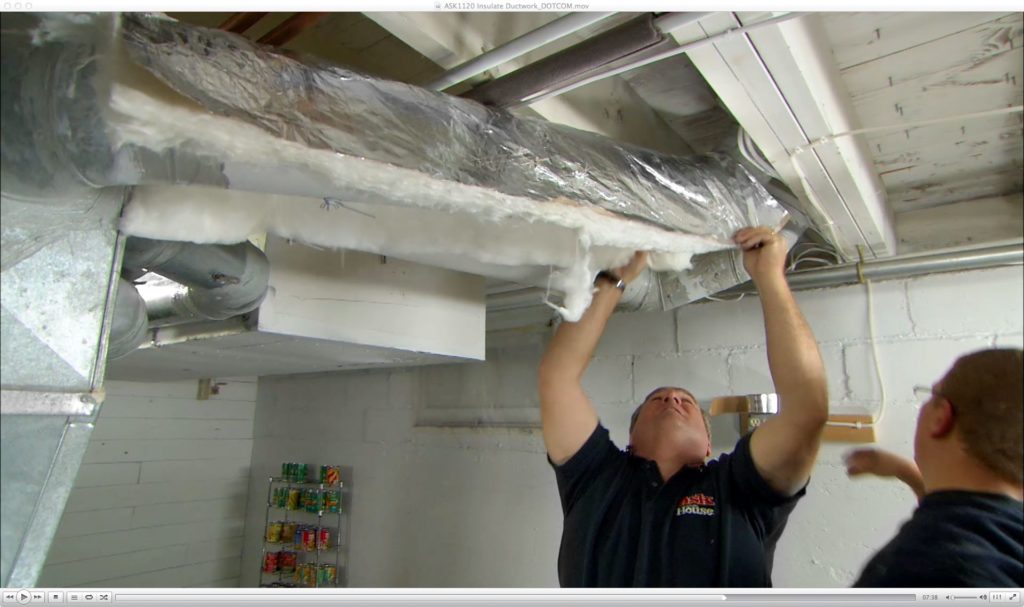
Consider Upgrading to a High-Efficiency Unit
If the air conditioning unit is old or not functioning efficiently, consider upgrading to a high-efficiency unit. Newer units are designed to be more energy-efficient, which can significantly reduce energy consumption.
When considering a new air conditioning unit, homeowners should look for models with high SEER (Seasonal Energy Efficiency Ratio) ratings. The higher the SEER rating, the more efficient the unit will be. Many modern units also have features such as variable speed fans and two-stage compressors, which can help improve efficiency and reduce energy costs.
Although this is a practical way to improve air conditioner efficiency, it can cost you more than other methods.
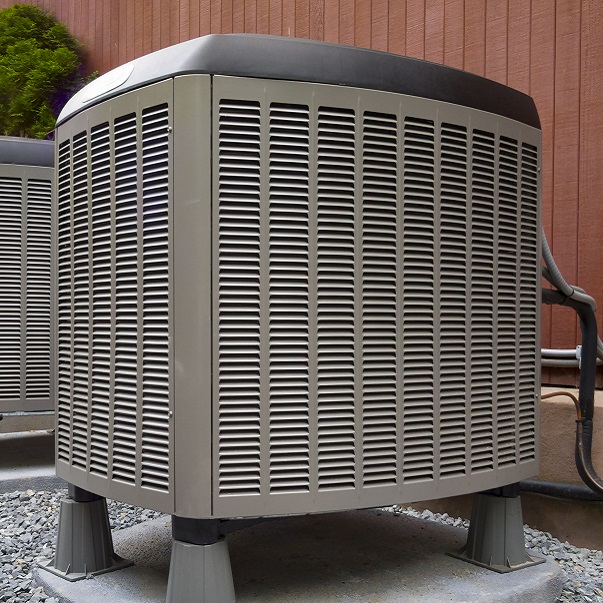
Reduce Heat Sources in Your Home to Improve Air Conditioner Efficiency
Heat sources in the home, such as incandescent light bulbs and electronics, can cause the air conditioner to work harder to cool the house. To reduce this workload, homeowners can replace incandescent bulbs with LED bulbs, which produce less heat. They can also unplug electronics when they’re not in use or utilize a smart power strip to turn them off automatically.
By reducing heat sources in the home, homeowners can improve air conditioner efficiency, leading to energy savings.
Using Ceiling Fans Can Also Improve A/C Efficiency
Ceiling fans can help you improve air conditioner efficiency. By circulating the air in the room, ceiling fans help distribute cool air more effectively, allowing the air conditioner to work less. This can lead to energy savings and increased comfort.
However, it’s important to note that ceiling fans only cool people, not rooms. Therefore, homeowners should turn off the fans when they’re not in the room to avoid wasting energy.
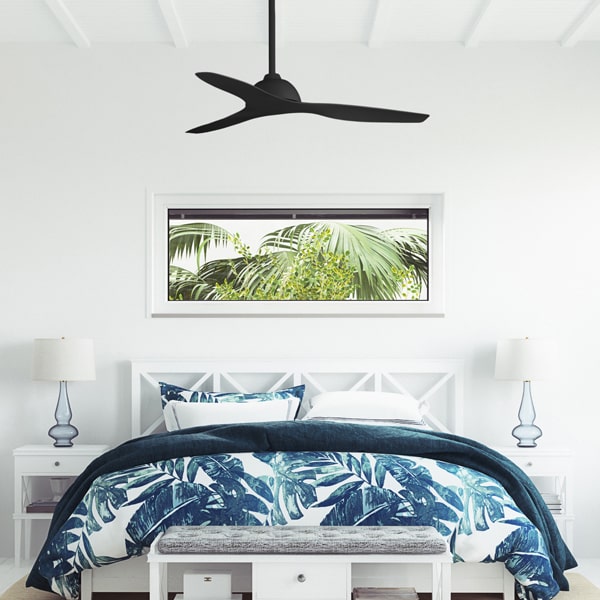
Consider Shading Your Home Exteriors To Improve A/C Efficiency
Shading the exterior of the home can help reduce the amount of heat that enters the home, which can improve air conditioner efficiency. Homeowners can use shading techniques such as planting trees, installing awnings or adding shading screens to windows.
By reducing the amount of heat that enters the home, shading can help the air conditioner operate more efficiently, leading to energy savings.
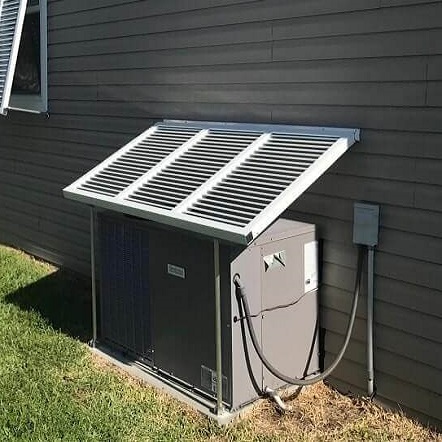
Always Keep The Condenser Unit Clean
The condenser unit is one of the important components of the air conditioning system, which is placed in the outdoor area and is responsible for removing heat from the refrigerant. Over time, debris, such as leaves and dirt, can accumulate around the condenser unit, reducing its ability to function efficiently.
Homeowners should regularly clean the condenser unit to ensure that it’s operating at its best. This can be done by turning off the power to the unit and using a garden hose to rinse away debris gently.
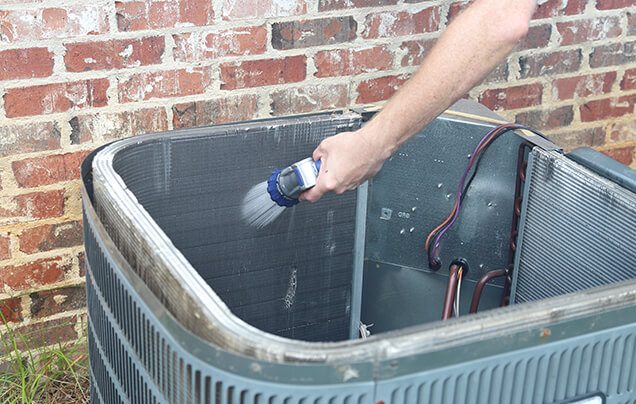
Improve Air Conditioner Efficiency With Natural Ventilation
Finally, homeowners can use natural ventilation to cool their homes and reduce their reliance on the air conditioner. This will help homeowners improve air conditioner efficiency without any additional expenditure.
This can be done by opening windows and doors to allow fresh air to circulate through the home.
However, it’s important to note that natural ventilation may not be effective in all climates or during certain times of the day. Homeowners should also be mindful of security concerns when leaving windows and doors open.
We have provided a complete guide on how you can improve air ventilation which we suggest you read.
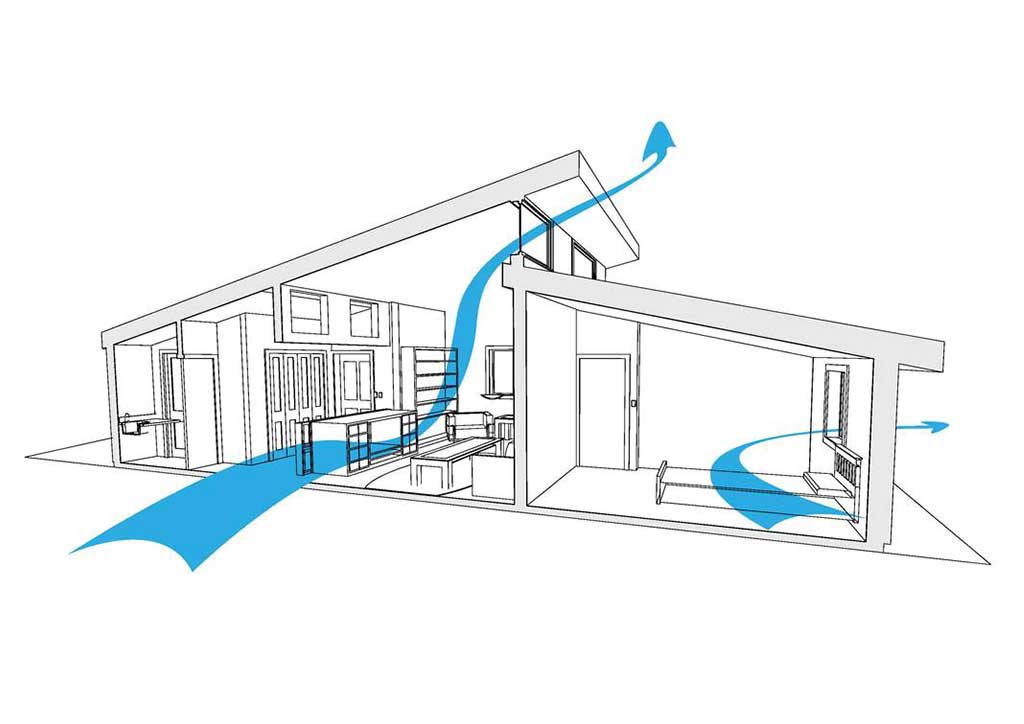
Do All Methods Work For All Types of Air Conditioners?
While many of the methods discussed in this article are general and apply to most types of air conditioning systems, there may be some variations depending on the specific type of air conditioner.
For example, a central air conditioning system may require different maintenance and cleaning techniques compared to a window or portable air conditioner. Similarly, the size and efficiency of the air conditioner may also affect which strategies are most effective.
It’s important for homeowners to consult the manufacturer’s instructions and recommendations for their specific type of air conditioner to ensure that they are following the proper maintenance and cleaning procedures.
In addition, some of the strategies discussed in this article may not be applicable in certain regions or climates. For example, shading techniques may be more effective in hotter temperatures, while natural ventilation may be more effective in cooler climates.
Overall, while there may be some variations depending on the type of air conditioner, many of the strategies discussed in this article are general and you can use them for most of the air conditioning systems.
